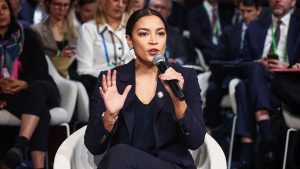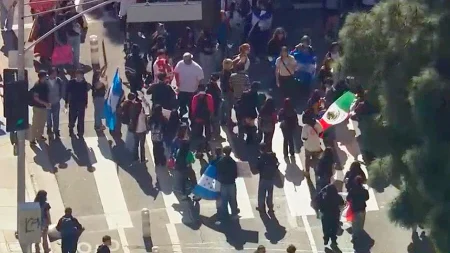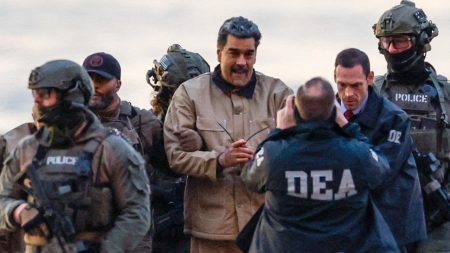A Partnership Born of Crisis: The Trump-Milei Connection
Argentina’s economic landscape has been deteriorating for years, with spiraling inflation and mounting debt pushing the South American nation to the brink of collapse. When libertarian economist Javier Milei assumed the presidency, he inherited a crisis of historic proportions. With traditional financial institutions hesitant to extend further credit and neighboring countries unable to provide substantial assistance, Milei found himself in desperate need of international support. In this moment of vulnerability, former U.S. President Donald Trump stepped forward with promises of economic aid and partnership, seeing in Argentina’s crisis both a humanitarian concern and a strategic opportunity to strengthen America’s position in South America.
The relationship between these two unconventional leaders has quickly developed into one of mutual admiration and political alignment. Both men share populist tendencies and a rejection of traditional political norms, with Milei often referred to as “Argentina’s Trump” during his rise to power. Their economic philosophies align in many ways, with both advocating for deregulation and free-market solutions. Trump’s public statements of support for Milei have boosted the Argentine president’s credibility on the world stage, while Milei has reciprocated with effusive praise for Trump’s leadership style and economic policies. This budding alliance has been celebrated by supporters as a necessary partnership between ideological allies, but critics warn that beneath the surface of this assistance lies expectations that could compromise Argentina’s sovereignty.
The promised American aid package, which includes emergency loans, trade concessions, and technical assistance, addresses Argentina’s immediate financial needs while potentially opening doors for American companies to secure favorable positions in Argentina’s resource-rich economy. Trump’s team has outlined a comprehensive plan to help stabilize the Argentine peso, reduce inflation, and attract international investment. However, this assistance comes with explicit requirements for economic reforms, including privatization of state-owned enterprises, reduction of trade barriers specifically benefiting American exporters, and preferential access to Argentina’s valuable lithium reserves and agricultural markets. These conditions have raised concerns that the partnership may be disproportionately beneficial to American interests while limiting Argentina’s policy options during its recovery.
The geopolitical implications of this relationship extend far beyond bilateral economic ties. The Trump-Milei alliance represents a potential counterweight to Chinese influence in South America, where Beijing has made significant economic inroads in recent years through its Belt and Road Initiative. By strengthening ties with Argentina, Trump aims to reassert American leadership in a region historically considered within the U.S. sphere of influence but increasingly courted by China. This strategic dimension adds another layer of complexity to the relationship, as Argentina now finds itself navigating between competing global powers while trying to address its domestic crisis. Milei must balance the immediate benefits of American support against the long-term implications of potentially alienating China, which remains a major trading partner and source of investment for many South American nations.
Domestically, the partnership has polarized Argentine society. Supporters of Milei view Trump’s backing as vindication of their president’s approach and a lifeline for their struggling economy. They point to early signs of inflation moderation and increased investor confidence as evidence that the partnership is already yielding positive results. However, opposition leaders and civic organizations have organized protests against what they characterize as a surrender of national interests to foreign control. Critics point to historical precedents where American economic intervention in Latin America served primarily U.S. interests while exacerbating inequality and political instability. This domestic division complicates Milei’s ability to implement the very reforms required by the aid agreement, creating a potential cycle of dependency on continued American support.
As this relationship continues to evolve, both leaders face significant political risks. For Milei, the success of his presidency may hinge on whether Trump’s promised assistance materializes fully and delivers tangible benefits to ordinary Argentinians suffering from economic hardship. Should the aid fail to produce visible improvements in living standards, Milei could face devastating political consequences. For Trump, the investment in Argentina represents both an opportunity to demonstrate his deal-making prowess on the international stage and a risk of being associated with potential failure in a volatile economic situation. Beyond the individual political calculations, this partnership may represent a broader shift in international relations, where bilateral deals between ideologically aligned leaders increasingly replace multilateral institutions and regional cooperation frameworks. Whether this approach creates sustainable economic growth and stability for Argentina or merely exchanges one form of dependency for another remains to be seen as this high-stakes relationship unfolds.










